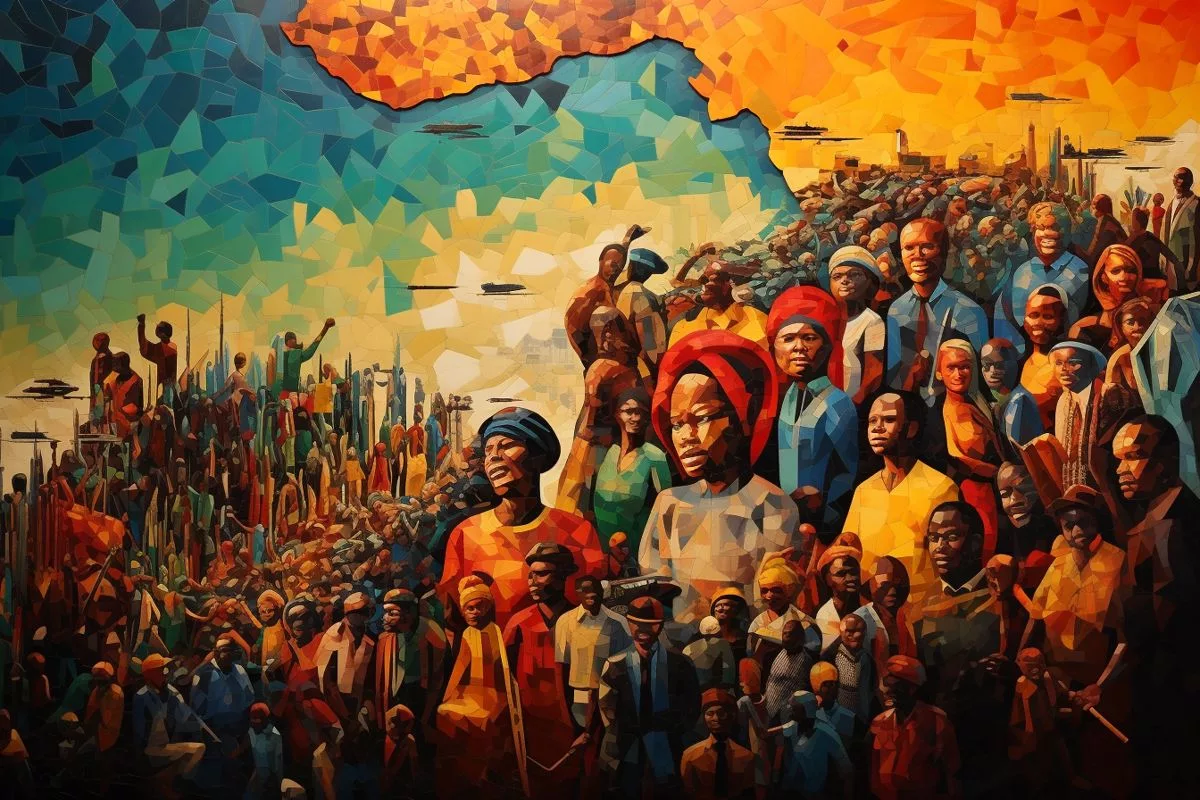Coalition governance in South Africa allows for collaboration among different parties and voices, promoting inclusiveness in the political sphere. However, unprincipled manipulation and difficulties in adapting to coalition dynamics can impact service delivery and weaken municipal administrations’ capacity to provide essential services. The Department of Cooperative Governance is pursuing legislative reforms to manage coalition governments more effectively and create a more stable and equitable environment. Despite its challenges, coalition governance reinforces the principles of a true democracy, with inclusivity and knowledge-sharing among diverse parties serving as driving forces for a brighter, more united future.
What is coalition governance in South Africa and what are its challenges and opportunities?
Coalition governance in South Africa promotes inclusiveness in the political sphere, allowing for collaboration among different parties and voices. However, it also presents challenges such as unprincipled manipulation and difficulties in adapting to coalition dynamics. These challenges can impact service delivery and weaken municipal administrations’ capacity to provide essential services. The Department of Cooperative Governance is pursuing legislative reforms to manage coalition governments more effectively and create a more stable and equitable environment. Despite the challenges, coalition governance reinforces the principles of a true democracy, with inclusivity and knowledge-sharing among diverse parties serving as driving forces for a brighter, more united future.
Embracing Diversity in South Africa’s Political Landscape
South Africa is known for its diverse political environment, encompassing a wide range of cultural, linguistic, and ideological viewpoints. This melting pot of ideas is the driving force behind the country’s ongoing democratic journey. In recent years, coalition governance has emerged as a crucial component of South Africa’s political landscape, with the potential to greatly influence the nation’s democratic development.
Coalition governance promotes inclusiveness in the political sphere, embracing the rich tapestry of South Africa’s diverse population. It serves as a crucial mechanism to guarantee that all voices are heard, irrespective of party affiliations or ideological leanings, and provides a unique learning opportunity for different parties to collaborate.
Every political party contributes a plethora of invaluable experiences and viewpoints, with no single party claiming exclusive ownership of wisdom or solutions. By engaging in cross-party dialogues, South Africa’s political landscape can harness its collective intelligence, leading to more informed decision-making processes and well-rounded policies.
Overcoming the Challenges of Coalition Governance
In addition to its numerous benefits, coalition governance also presents several challenges. The shifting nature of coalition dynamics has underscored the difficulties faced by South Africa’s political parties in adapting to the demands of coalition politics. These struggles have resulted in smaller parties engaging in unprincipled manipulation, internal disputes within councils, and some municipal councils’ failure to fulfill their constitutional responsibilities.
These challenges inevitably affect service delivery, significantly impacting the ability of municipalities to address service delivery backlogs and impeding community development. Such instability can ultimately weaken municipal administrations’ capacity to provide essential services, creating uncertainty in the planning and predictability of council decisions.
Acknowledging the obstacles faced by councils operating within coalitions, the Department of Cooperative Governance is actively pursuing legislative reforms. Numerous proposals have arisen on effectively managing coalition governments for the greater benefit of communities, such as altering the proportional representation system, implementing an electoral threshold, and adopting a collective executive system.
Charting a Path Forward: Legislative Reforms and Collaborative Efforts
The department is in the process of developing a coalition framework and drafting a bill to amend the Local Government: Municipal Structures Act of 1998. This proposed amendment aims to introduce several measures, including requiring political parties to obtain at least 1% of valid votes to be eligible for a seat on the council, restricting motions of no confidence against the speaker or mayor, and regulating the formation of coalition agreements.
While these changes might not immediately transform the dynamics of coalitions within municipalities, they strive to create a more stable and equitable environment for coalitions to function effectively. In pursuit of this goal, the national coalition dialogue led by Deputy President Paul Mashatile has reached a consensus on the need for further discussions on areas with divergent opinions, such as refining electoral thresholds.
Despite the various challenges associated with coalition governance, it presents South Africa with a promising future where inclusivity and knowledge-sharing among diverse parties serve as the driving forces. This approach reinforces the core principles of a true democracy, reminding us that the ultimate objective is not about winning or losing but about serving the greater good.
As South Africa continues to navigate its complex political landscape, all stakeholders must remain committed to the vision of the Rainbow Nation and work collaboratively towards a brighter, more united future. The Chartered Institute of Government Finance, Audit & Risk Officers (CIGFARO) Annual Conference exemplifies this dedication to collaborating with all stakeholders to address local government challenges and support their constitutional mandates. Through such joint efforts, South Africa’s democracy and coalition governance will continue to evolve and flourish.
1. What is coalition governance in South Africa?
Coalition governance in South Africa is a political system that allows for collaboration among different parties and voices, promoting inclusiveness in the political sphere.
2. What are the challenges of coalition governance in South Africa?
The challenges of coalition governance in South Africa include unprincipled manipulation, difficulties in adapting to coalition dynamics, and impact on service delivery, which can weaken municipal administrations’ capacity to provide essential services.
3. What is the Department of Cooperative Governance doing to address these challenges?
The Department of Cooperative Governance is pursuing legislative reforms, including proposals such as altering the proportional representation system, implementing an electoral threshold, and adopting a collective executive system.
4. What is the proposed amendment to the Local Government: Municipal Structures Act of 1998?
The proposed amendment aims to introduce several measures, including requiring political parties to obtain at least 1% of valid votes to be eligible for a seat on the council, restricting motions of no confidence against the speaker or mayor, and regulating the formation of coalition agreements.
5. What is the national coalition dialogue led by Deputy President Paul Mashatile?
The national coalition dialogue aims to reach a consensus on areas with divergent opinions, such as refining electoral thresholds.
6. What is the driving force behind South Africa’s ongoing democratic journey?
The driving force behind South Africa’s ongoing democratic journey is the diverse political environment, encompassing a wide range of cultural, linguistic, and ideological viewpoints.
7. How does coalition governance promote inclusiveness in the political sphere?
Coalition governance promotes inclusiveness in the political sphere by embracing the rich tapestry of South Africa’s diverse population, guaranteeing that all voices are heard, irrespective of party affiliations or ideological leanings, and providing a unique learning opportunity for different parties to collaborate.
8. What is the ultimate objective of coalition governance in South Africa?
The ultimate objective of coalition governance in South Africa is not about winning or losing but about serving the greater good, reinforcing the core principles of a true democracy, where inclusivity and knowledge-sharing among diverse parties serve as the driving forces.








